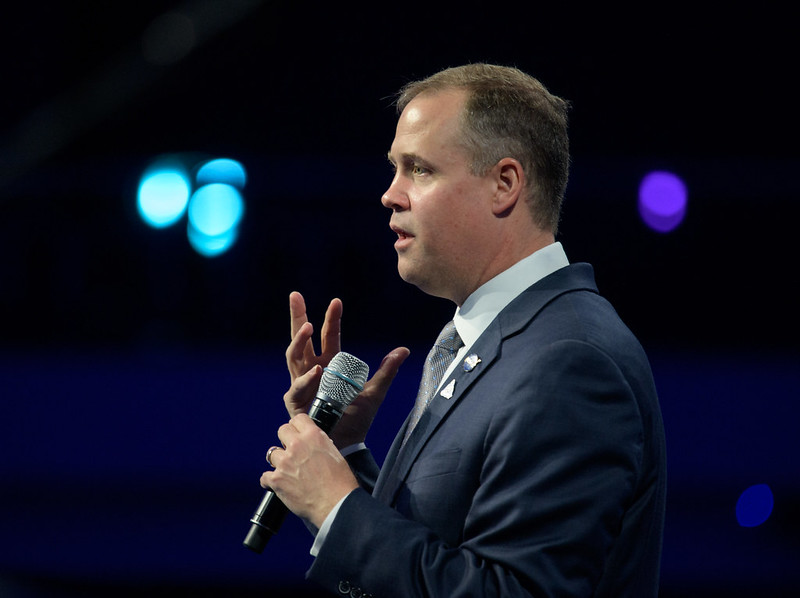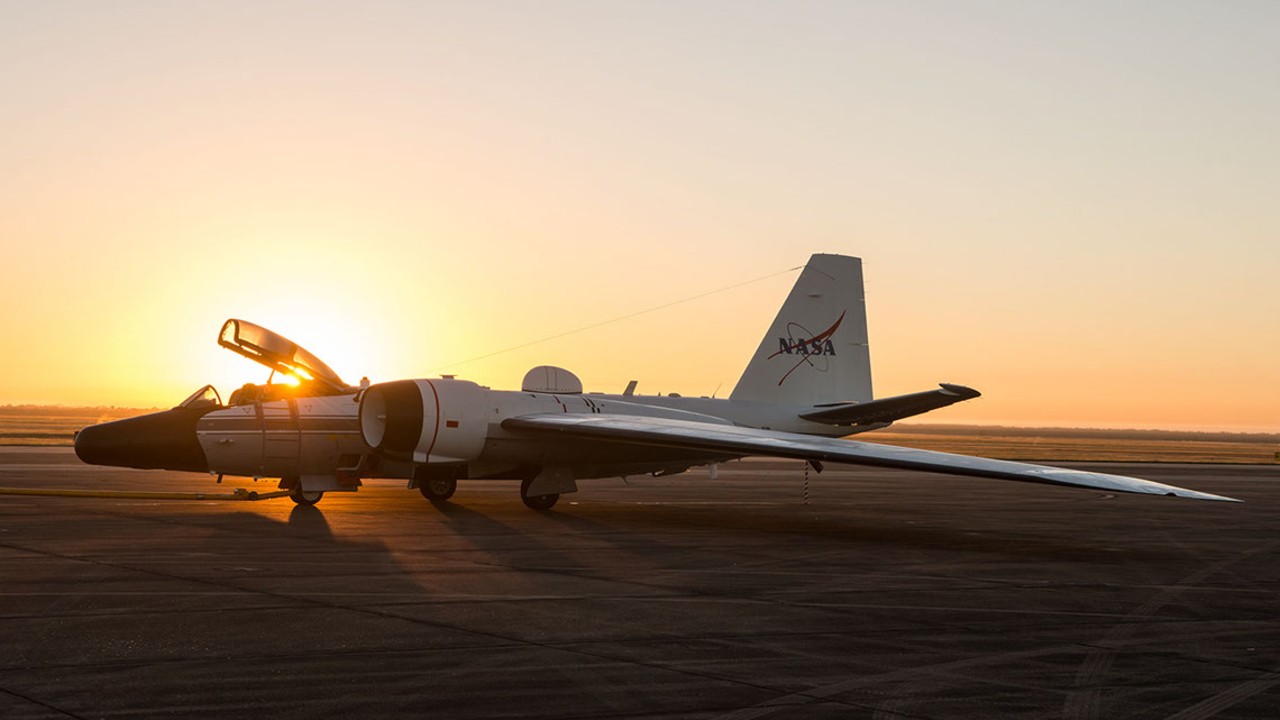NASA Chief Keeps Saying 'Pluto Is a Planet' Because It's a Complex, Amazing World
Pluto IS awesome.
The long-standing debate over Pluto's planethood recently got a public boost from NASA Administrator Jim Bridenstine, who said the world should definitely be a planet.
Observations from NASA's New Horizons spacecraft in 2015 revealed that Pluto was far more complex than expected, with a probable underground ocean, organic materials (the potential precursors of life) on the surface and a multilayer atmosphere, Bridenstine said at the International Astronautical Congress in Washington late last month.
"I'm here to tell you, as the NASA administrator, I believe Pluto is a planet," Bridenstine said to applause from the audience as the conference opened to public attendance.
Related: Destination Pluto: NASA's New Horizons Mission in Pictures
The agency head made similar comments about Pluto in late August. But despite the object's complex characteristics, by the official definition of the International Astronomical Union, which oversees all planetary naming conventions, Pluto is not a planet.
In 2006, a time when many other worlds of Pluto's size were being discovered around the solar system, the body was reclassified as a dwarf planet. The status change came out of a controversial 2006 vote by scientists, with which New Horizons principal investigator Alan Stern and others do not agree.
The vote adopted an official definition of "planet" that includes a sticky phrase: Planets clear all debris in their orbit. Pluto doesn't fit that definition. Neither does Earth, for that matter, what with the thousands of near-Earth objects whizzing relatively close to our world. (The definition also requires that a planet be round and orbit the sun).
Breaking space news, the latest updates on rocket launches, skywatching events and more!
"I think the way you should define a planet is based on its intrinsic value," Bridenstine said. However, he did not suggest any concrete steps, beyond speaking with the community, for changing that definition.
"I know there's a lot of scientists that agree with that assessment [of Pluto's planethood]," he added, "and we need to keep letting people know, because that New Horizons mission is amazing and it keeps giving us good information."
- Pluto Flyby Anniversary: The Most Amazing Photos from NASA's New Horizons
- Pluto's Heart: A Cosmic Valentine in Photos
- Photos of Pluto and Its Moons
Follow Elizabeth Howell on Twitter @howellspace. Follow us on Twitter @Spacedotcom and on Facebook.

Elizabeth Howell (she/her), Ph.D., was a staff writer in the spaceflight channel between 2022 and 2024 specializing in Canadian space news. She was contributing writer for Space.com for 10 years from 2012 to 2024. Elizabeth's reporting includes multiple exclusives with the White House, leading world coverage about a lost-and-found space tomato on the International Space Station, witnessing five human spaceflight launches on two continents, flying parabolic, working inside a spacesuit, and participating in a simulated Mars mission. Her latest book, "Why Am I Taller?" (ECW Press, 2022) is co-written with astronaut Dave Williams.

